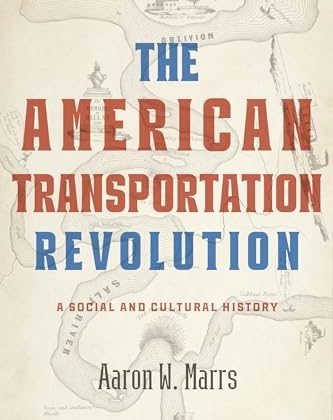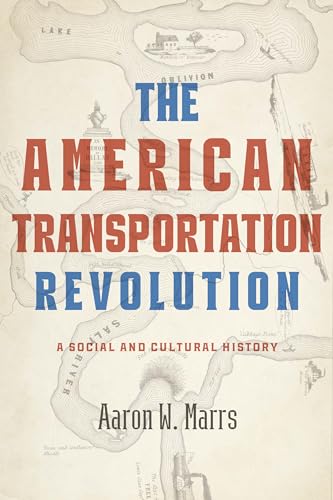

Aaron W. Marrs is on the staff of the Office of the Historian at the U.S. Department of State. This interview is based on his new book, The American Transportation Revolution: A Social and Cultural History (Johns Hopkins University Press, 2024).
JF: What led you to write The American Transportation Revolution?
AM: While researching my first book, Railroads in the Old South, I often came across primary sources which discussed the social and cultural impact of steam transportation, but didn’t quite fit into the purview of the book. I thought that this material was significant enough that it warranted its own exploration, and so I decided to pursue a broader social and cultural history of steam transit, not just limited to the South.
JF: In 2 sentences, what is the argument of The American Transportation Revolution?
AM: Steam transportation had a broad cultural impact on the United States, which we can see through literature, images, music, and myriad other forms. But Americans across the country also imprinted their own cultural meaning on this new technology, giving it a relevance and cultural import that its inventors surely did not intend.
JF: Why do we need to read The American Transportation Revolution?
AM: In our modern lives, we are surrounded by and even dependent on technology. The technology we use has an impact on our culture — new words get introduced into our language, parents have to consider technology’s impact on their children, and so on. Technology that may seem “old” to us now was, of course, once new and dynamic. I hope that my book illustrates how Americans have dealt with new technologies before, and how these technologies served not only their stated purpose, but changed the culture of the country.
JF: Why and when did you become an American historian?
AM: I have always loved reading, and while I was in middle school I was constantly devouring books about history and biography. I majored in history in college, but didn’t settle on American history until graduate school. At the University of South Carolina’s graduate program, I was surrounded by a great cohort of graduate students and skilled professors all working on nineteenth century U.S. history, and had a wonderful time exploring this crucial period of history in that nurturing environment.
JF: What is your next project?
AM: For the moment, I will be diving in the “to read” pile that stacked up while I was writing!
JF: Thanks, Aaron!